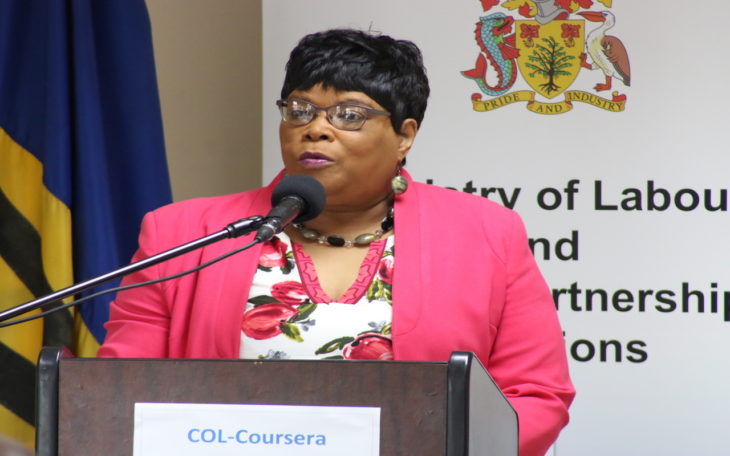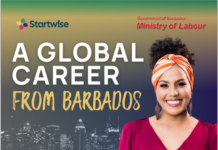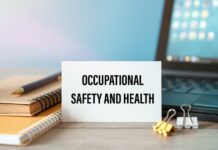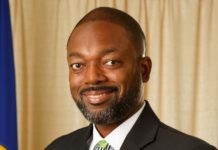
Some 3,000 people among the 30,000 Barbadians out of a job in the fallout from the coronavirus pandemic, Government job cuts and long-term economic decline, have signed up for free online learning to build skills for new employment.
By midday, just over 2,300 people were enrolled in various courses as the Ministry of Labour launched the Commonwealth of Learning/Coursera Workforce Recovery Programme, which offers 4,000 free courses.
Pleading with Barbadians to join the programme, the ministry’s top official said now was the time for residents to position themselves for economic recovery.
Permanent Secretary in the Ministry of Labour Dr Karen Best said: “For those of you who have been badly affected as a result of COVID-19, I implore you to use this downtime to upskill or gain new skills by registering for one or more of these free courses.”
Adding that the courses were open to “the youth to the mature adult”, Dr Best said that those without an internet connection or a computer, would be able to use the Frank Walcott Labour College as a result of a partnership with the Barbados Workers’ Union (BWU).
Individuals are able to register for the courses by visiting the Ministry of Labour’s website, and are required to undertake the studies between August 31 and December 31.
The courses are being offered by over 200 accredited and recognized universities. On completion of the course, individuals will be awarded a certificate from the respective institutions.
Welcoming the programme, BWU General Secretary Toni Moore also called on residents to take up the opportunity.
“If we are to ensure business continuity, and if we are to assist workers in recovering from the crisis, education, training, retraining, upskilling, retooling and advice, these are as critical as other material support such as providing PPE, providing medical supplies and donating hampers and putting food on people’s tables,” she said.
However, Moore said it will require a lot more than training and retooling to ensure a turnaround in economic fortunes.
“Reskilling and upskilling will not in itself be an answer. There is a tremendous requirement for all of us to reimagine the way we have been relating to each other.
COVID-19 has caused us to focus more on relationships…. Building our reskilling muscle is therefore only one step, albeit an important one to ensuring our recovery.
“But building back better also requires some behaviour shifts, some attitudinal changes by workers yes, but also by employers and institutions set up in law and practice to provide support to workers. I think there are some human relations offerings that therefore might benefit all of us.”
Minister of Labour Colin Jordan said he was pleased that Barbadians have been showing an interest in the programme.
He said the courses should help people to build self-esteem as their level of skills increase and help them improve their “social and economic standing”.
Insisting that preparation for post COVID was crucial, Jordan added that “building capacity, acquiring more skills, better skills and new skills, will be vitally important to face an uncertain future”.
The free courses have already been launched in several other countries including St Lucia, Grenada and Trinidad and Tobago. (MM)





